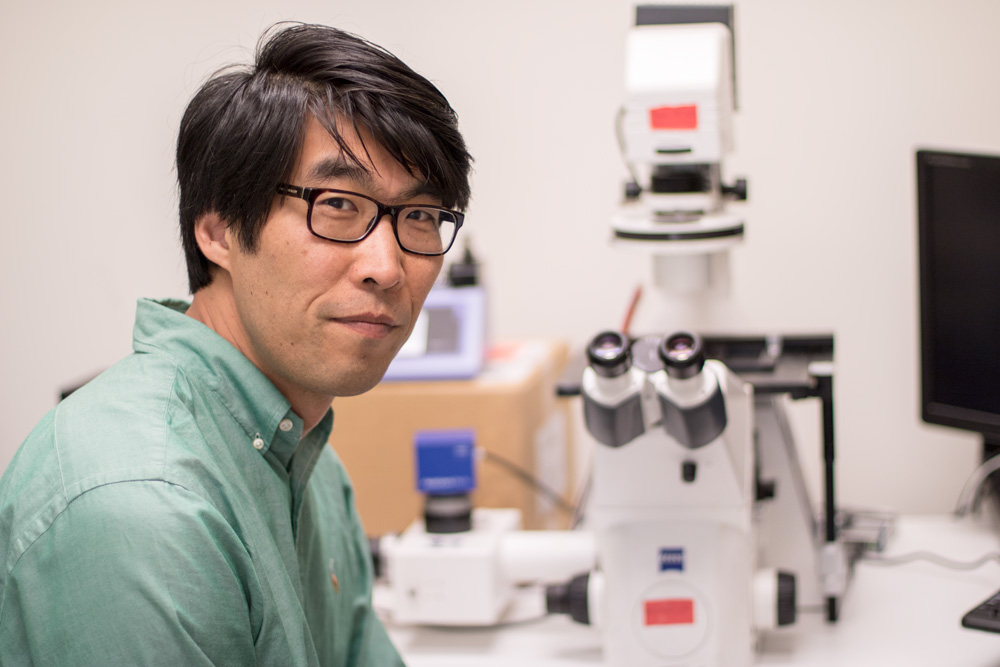Dr. Dae Kun Hwang

Areas of Academic Interest
Microfluidics
Functional polymer materials
Liquid crystals
Education
| Year | University | Degree |
|---|---|---|
| 2006 | McGill University |
PhD |
| 2002 | McGill University | MSc |
| 1998 | Chosun University, Kwang-Ju | BEng |
Selected Courses
| Course Code | Course Title |
|---|---|
| CHE 338 | Chemical Engineering Computations |
| CE8331 | Membrane Technology |
| CE8201 | Modeling & Simulation in Chemical Engineering |
Spotlight
Imagine studying with a professor whose research could revolutionize health care. Now imagine playing an active role in that research. That’s exactly what Dae Kun Hwang’s students have the opportunity to do.
Hwang and his team are developing polymers that could be used for circulating tumour cell detection and to create implants for patients who may need a slow, programmed release of drugs like chemotherapy or insulin.
If it sounds like the future of medicine, it is—one his students are playing a hands-on role in. “We train our students in lab work,” Hwang says. “From learning how to use a peptide, to mixing—everything they need to know to contribute to the research.” He also gives his students, undergrads included, the opportunity to be published, often as co-authors on his groundbreaking work.
This collaborative approach is not surprising given Hwang’s team-oriented nature. A sports fan and athlete, he can often be found shooting hoops in the gym with students. “I think it’s important for researchers to get out of the lab and connect with people.”
At Toronto Metropolitan University, Hwang adds, there’s no shortage of ways to make those connections. “The students have lots of opportunities to engage with the professors, each other and industry. It’s a very unique learning environment.”

“Toronto Metropolitan University is a fast-growing school. And we’re all growing together.”
- Canada Research Chair Tier II
- NSERC PDF
- Foster, D. A. N., & Hwang, D. K. (2022). Microfluidic flow assembly system with magnetic clamp for unlimited geometry in Millimetric Hydrogel Film patterning. Applied Materials Today, 26, 101330.
- Manzoor, A. A., & Hwang, D. K. (2022). Modeling and numerical studies of three‐dimensional conically shaped microwells using non‐uniform photolithography. Macromolecular Theory and Simulations, 2100085.
- Thompson, S., & Hwang, D. K. (2021). Scalable, membrane‐based microfluidic passive cross‐flow platform for monodispersed, water‐in‐water microdroplet production. Advanced Materials Interfaces, 8(21), 2101371.
- Manzoor, A. A., Romita, L., & Hwang, D. K. (2020). A review on Microwell and microfluidic geometric array fabrication techniques and its potential applications in cellular studies. The Canadian Journal of Chemical Engineering, 99(1), 61–96.
- Mirbagheri, M., Kaur, J., Pham, H. V., Adibnia, V., Zarrin, H., Banquy, X., & Hwang, D. K. (2020). Plasmon-free polymeric nanowrinkled substrates for surface-enhanced Raman spectroscopy of two-dimensional materials. Langmuir, 37(1), 322–329.